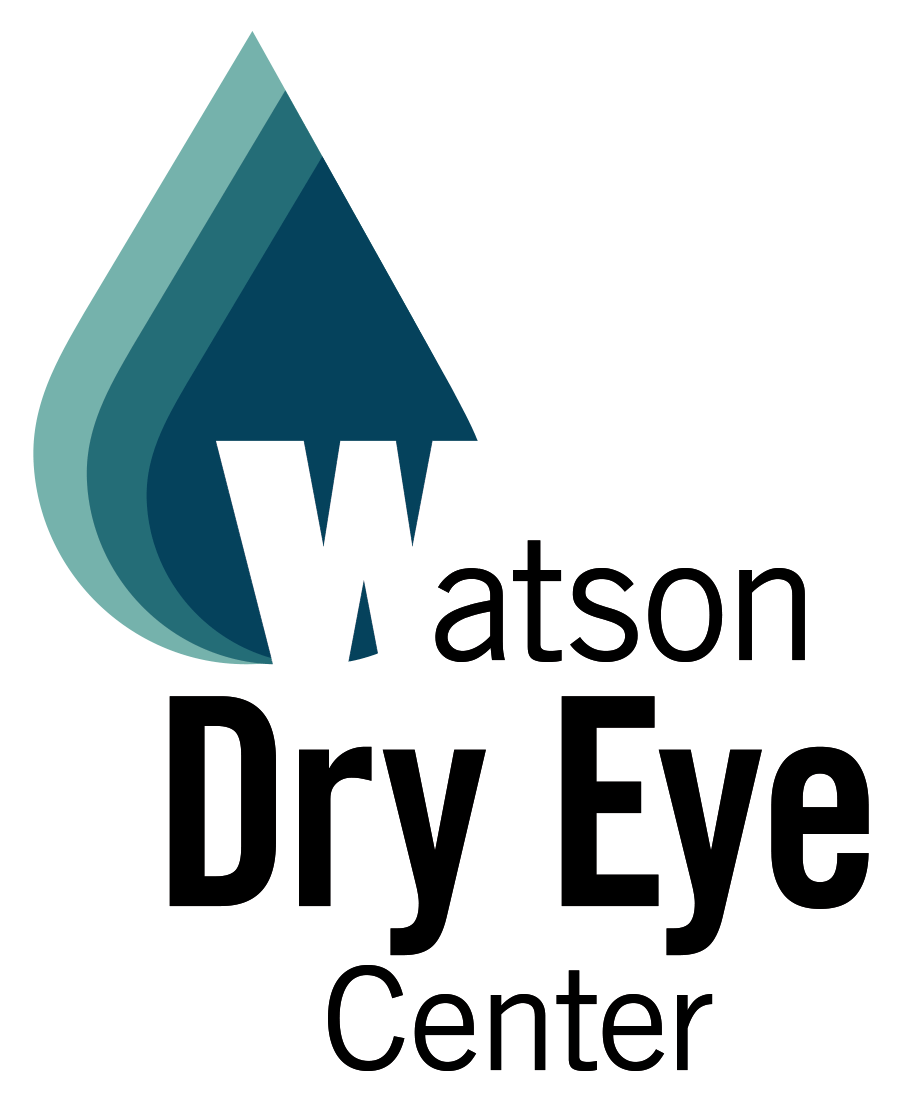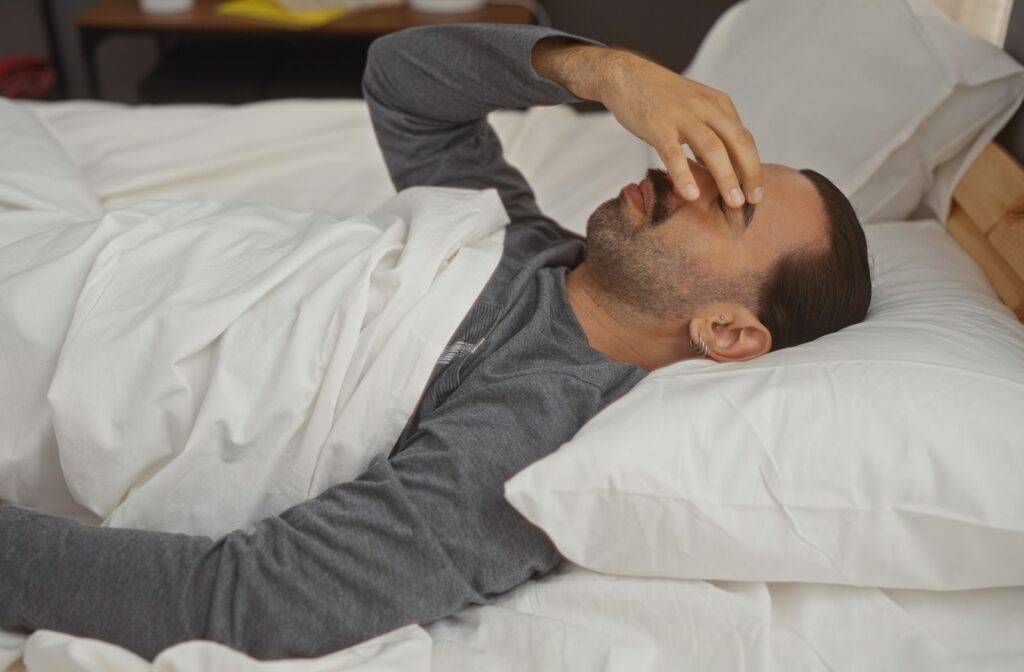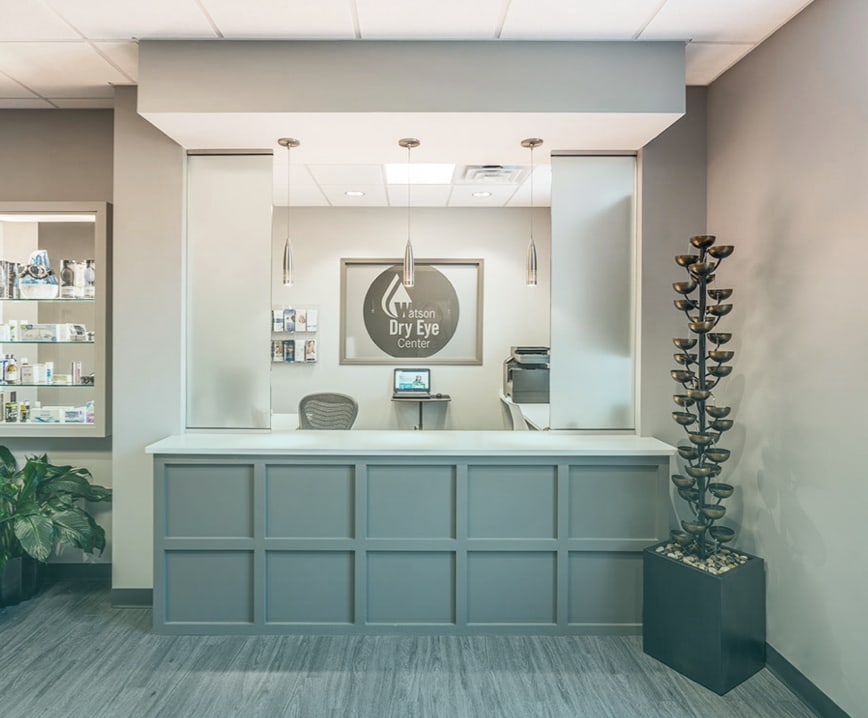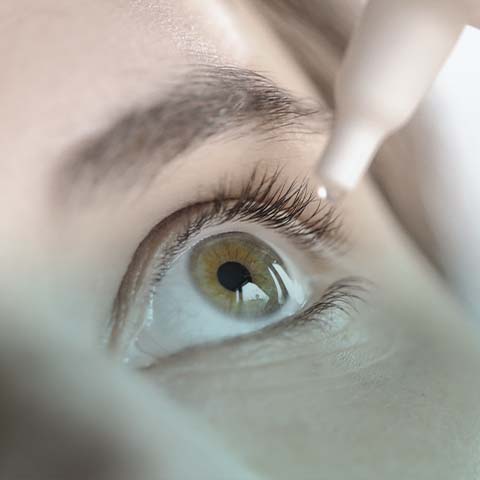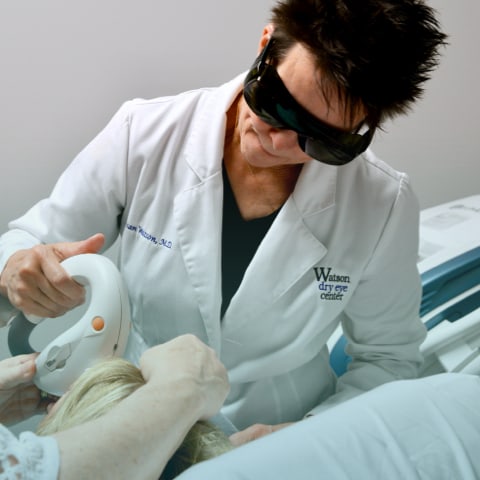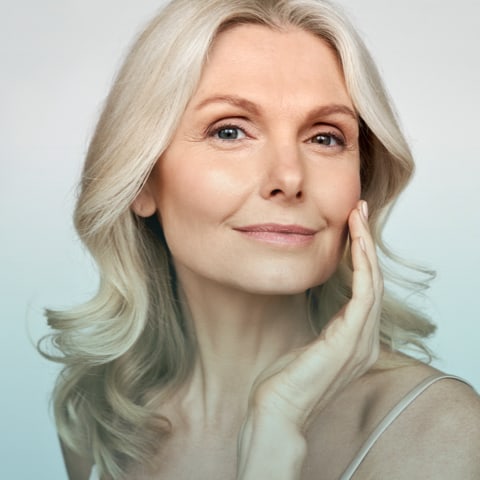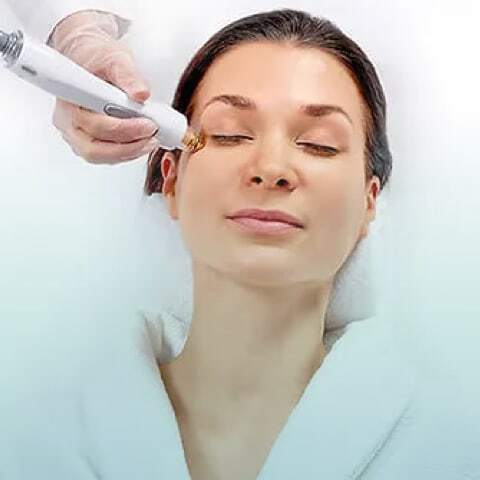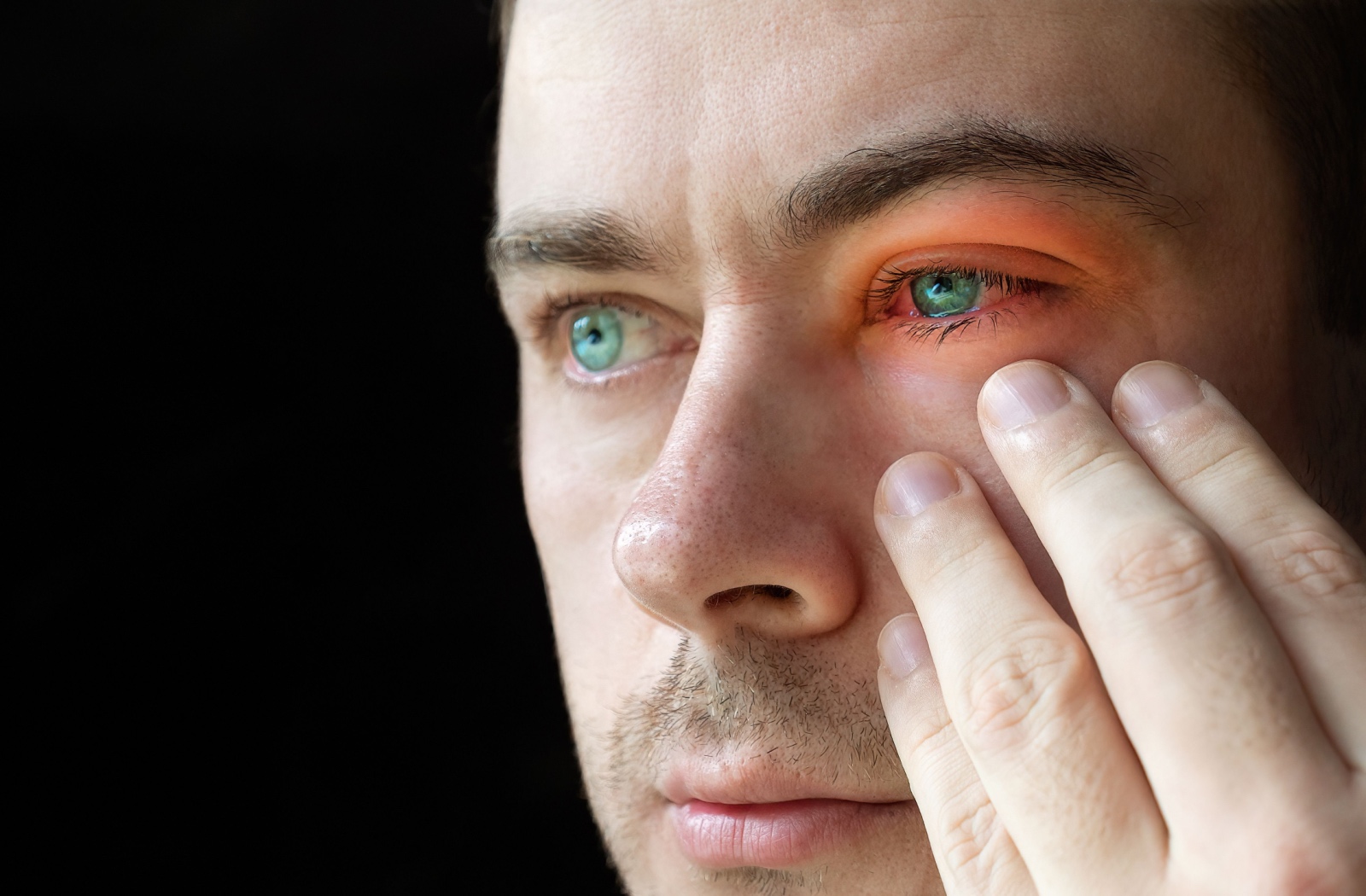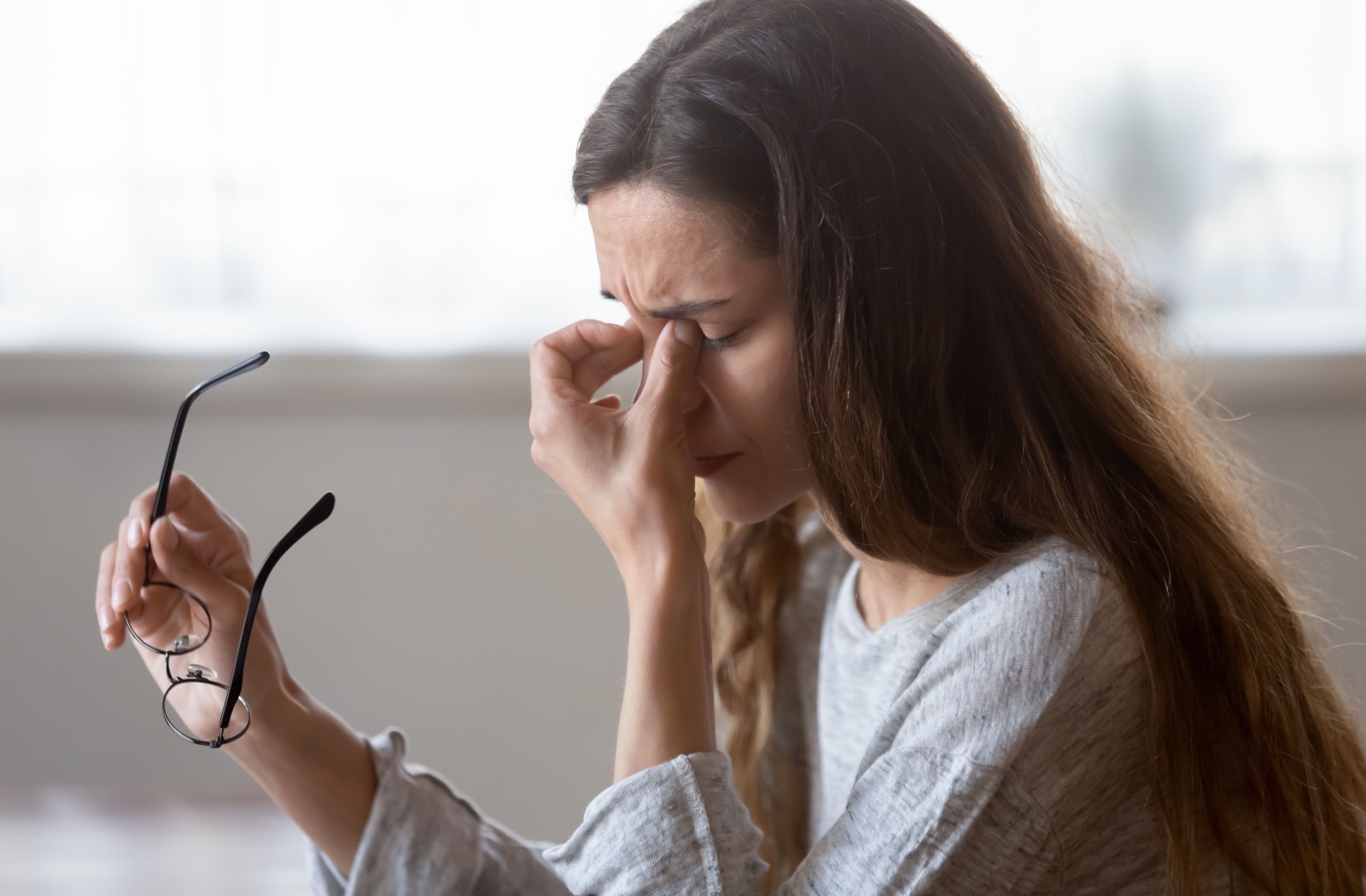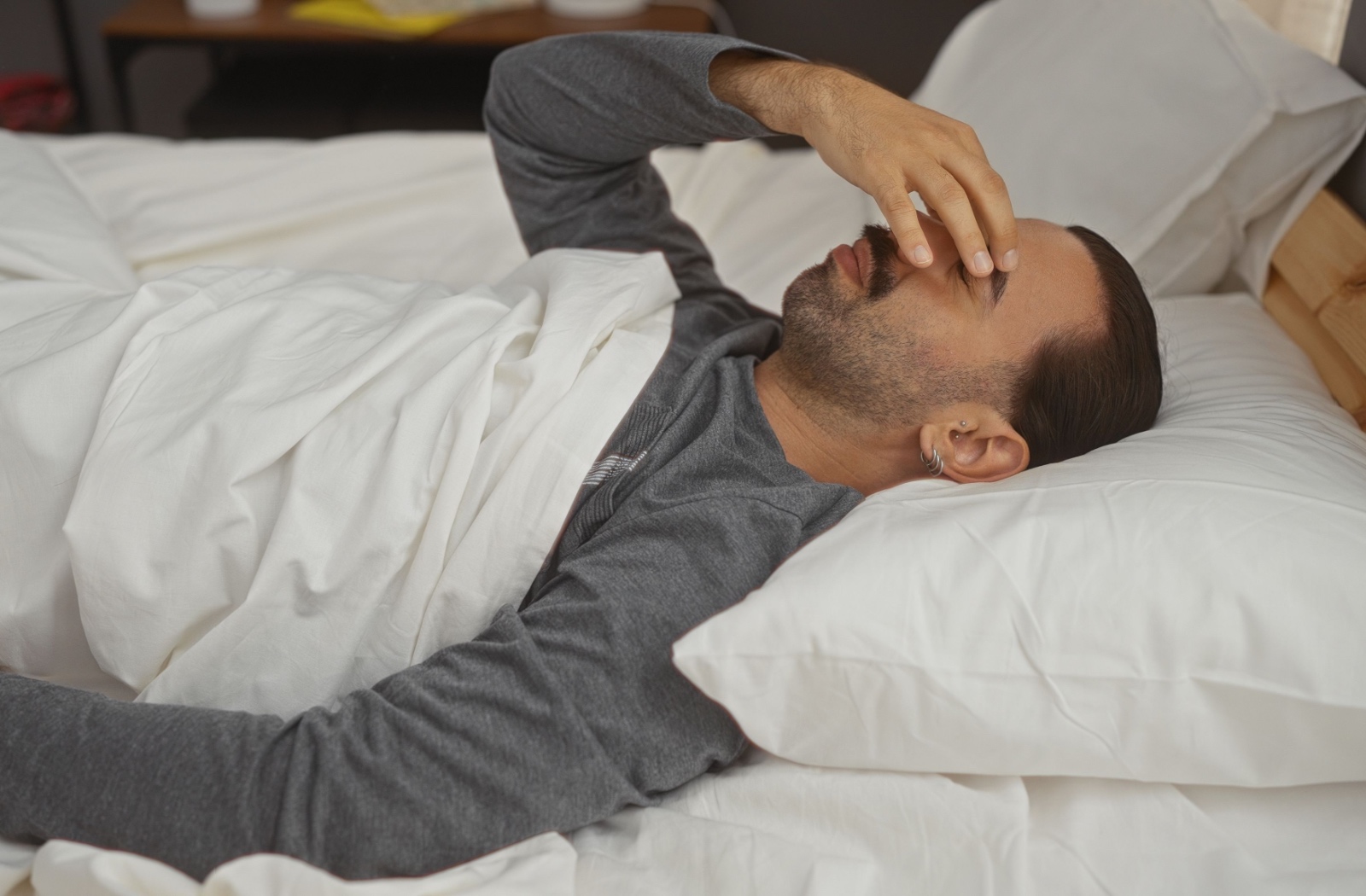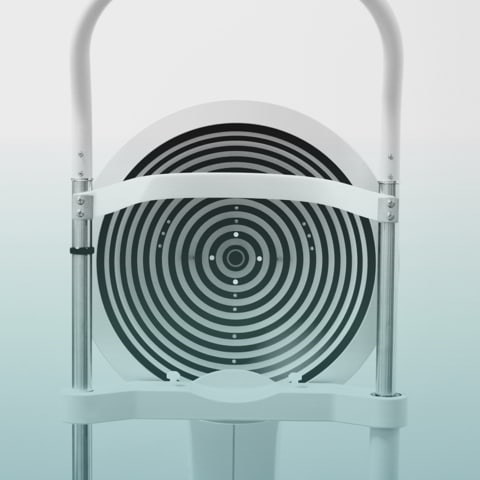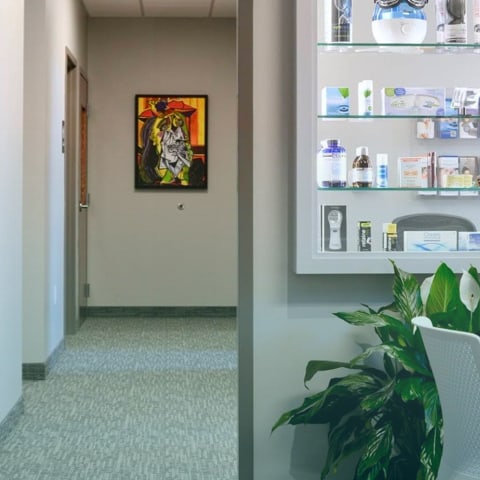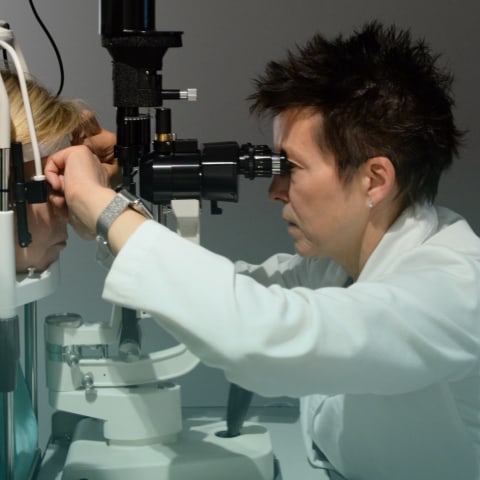Dry eye syndrome doesn’t take a break when you close your eyes for the night—it’s a persistent condition that affects people around the clock, regardless of the time of day. If you’ve ever found yourself waking up in the middle of the night or the morning with dry, irritated eyes, you’re certainly not alone in this experience. This condition can be triggered by various factors, including environmental conditions, prolonged screen time, allergies, or even certain medications.
It impacts millions of people and is more common than you might think. Understanding the underlying causes is the first step toward finding relief and improving your overall eye health.
Common Causes of Morning Dry Eyes
There are several reasons why your eyes may feel dry when you first wake up, and each individual may experience different contributing factors. Here are some of the most common causes:
Environmental Factors
- Dry bedroom environment: A lack of humidity in your sleeping space can worsen eye dryness. When the air is too dry, it leads to insufficient moisture retention, causing discomfort and irritation throughout the night.
- Airflow: Sleeping near fans or air conditioning can increase eye dryness. Constant airflow can evaporate the tear film more quickly, leading to discomfort. Adjusting airflow direction or using a humidifier can help maintain moisture levels.
- Allergies: Seasonal or environmental allergies can cause inflammation, leading to dryness and discomfort in the eyes. Pollen, dust, and pet dander can trigger reactions, so managing these allergens is essential for eye comfort.
Sleep-Related Issues
- Incomplete eyelid closure (lagophthalmos): This condition occurs when eyelids don’t close completely during sleep, causing dryness and irritation. Factors like facial nerve damage or aging can contribute to this issue, which exposes the cornea to irritants and increases infection risk.
- Sleep disorders: Conditions like sleep apnea can disrupt sleep quality and reduce blood oxygen levels, potentially harming the optic nerve and increasing glaucoma risk. Fatigue from sleep disorders can also lead to eye strain, making treatment important for protecting vision.
Health Conditions
- Medications: Certain medications, such as antihistamines and some antidepressants, can cause eye dryness. Consult a healthcare provider if you suspect your medication affects your eye health.
- Underlying eye conditions: Conditions like blepharitis (inflammation of the eyelids) and Sjögren’s syndrome (an autoimmune disorder affecting moisture-producing glands) can cause significant dryness, requiring proper diagnosis and management.
Lifestyle Factors
- Screen time: Excessive screen use, especially before bed, can lead to digital eye strain, causing dryness and discomfort. Regular breaks using the 20-20-20 rule—every 20 minutes, look at something 20 feet away for 20 seconds—are essential.
- Contact lenses: Wearing contact lenses for too long, especially overnight, can contribute to dryness. Proper cleaning and sticking to recommended wearing schedules are crucial for eye health.
- Dehydration: Not drinking enough fluids can significantly reduce tear production, leading to dry eyes. Staying hydrated is key to maintaining overall health and eye moisture.
- Eye makeup: Sleeping with eye makeup on can irritate your eyes and lead to dryness or infections. Establishing a nightly routine to remove makeup can help maintain eye comfort and health.
At-Home Solutions for Morning Dry Eye
Fortunately, several at-home remedies can help alleviate the symptoms of dry eyes in the morning, including:
- Improve sleep hygiene: Establish a consistent routine to prepare your body for restful sleep. Go to bed and wake up at the same time daily, create a calming bedtime environment, and limit screen time before bed to enhance overall eye health.
- Minimize contact lens usage: Give your eyes a break from contact lenses, especially before sleeping. Opt for glasses instead, particularly during long screen time or when at home.
- Use a humidifier: Adding moisture to your room with a humidifier can help prevent your eyes from drying out, especially in dry or air-conditioned spaces, supporting eye health during sleep.
- Artificial tears: Use preservative-free artificial tears daily to lubricate your eyes, especially upon waking, to refresh and hydrate them after a night’s rest.
- Warm compresses: Applying warm compresses can stimulate tear production and relieve dryness. Soak a clean cloth in warm water, wring it out, and place it over your eyes for several minutes to enhance moisture retention.
- Eyelid hygiene: Regularly clean your eyelids to remove irritants and reduce inflammation. Use a gentle eyelid scrub or diluted baby shampoo to keep your eyelids clean and free of debris.
- Preservative-free ophthalmic ointment: For severe dryness, preservative-free ophthalmic ointments provide long-lasting relief. These thicker formulas coat the eye surface, offering hydration throughout the night.
- Sleep mask: Use a sleep mask to keep your eyes closed and protected during sleep. It also blocks light, creating a better environment for restorative sleep, which supports eye health.
- SleepTite/Sleep Rite: Products like SleepTite or Sleep Rite help maintain eyelid closure during sleep, benefiting those with dry eyes by encouraging moisture retention throughout the night.
When to Seek Professional Care for Dry Eyes
If your symptoms persist despite trying these at-home treatments, it may be time to seek professional help. Watson Dry Eye Center offers a variety of treatment options tailored to relieve dry eye symptoms effectively. Our team is dedicated to helping you find relief and improve your eye health.
Don’t let dry eye disrupt your life—contact Watson Dry Eye Center today to schedule an appointment and explore your options for a clearer, more comfortable tomorrow.
